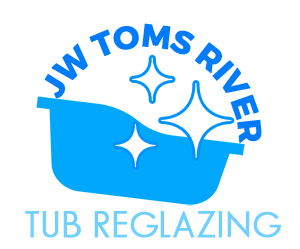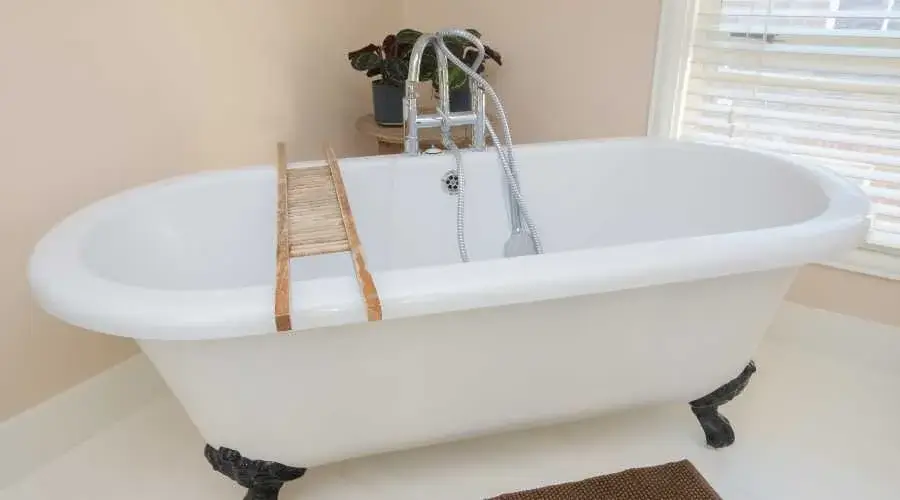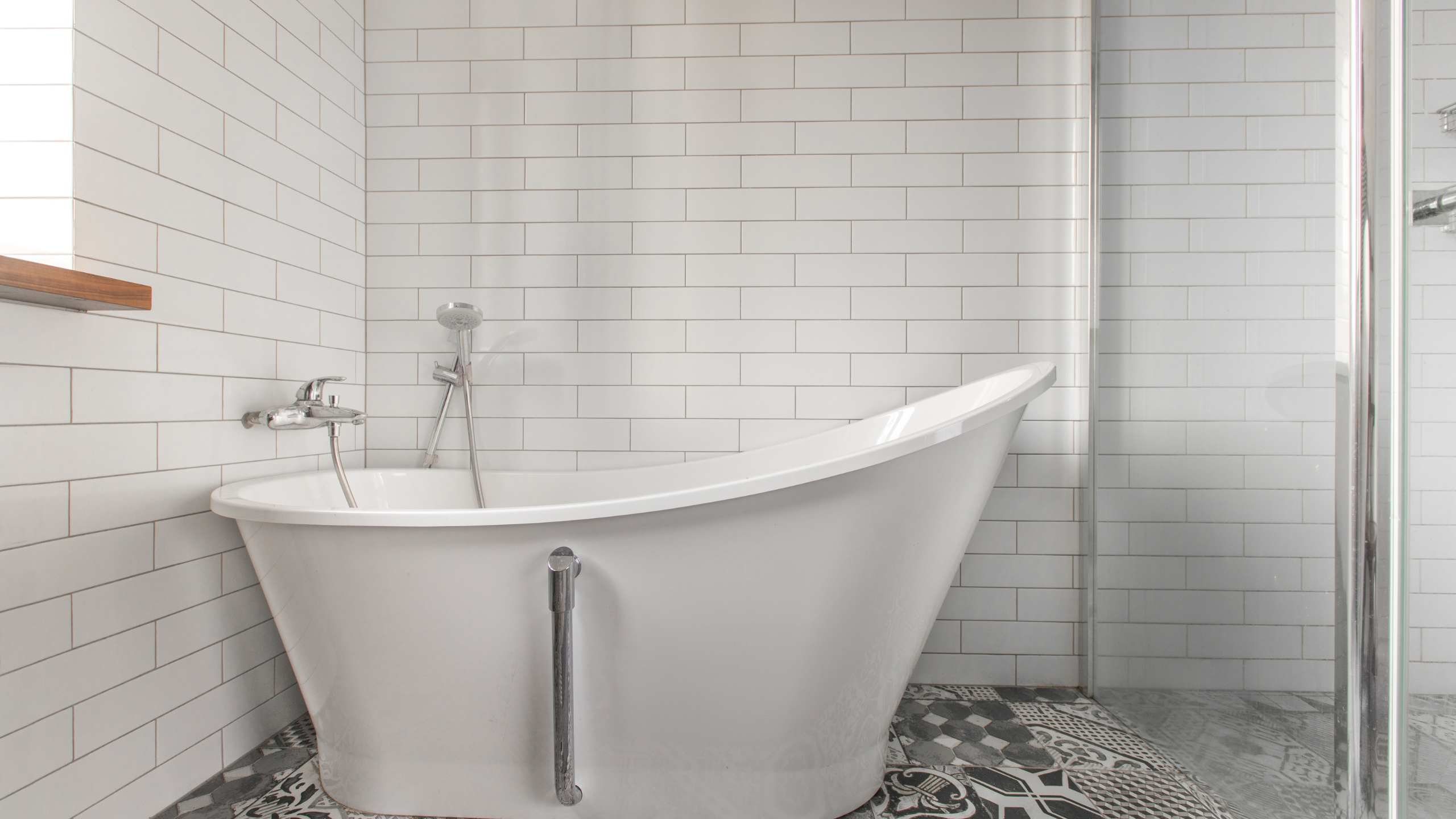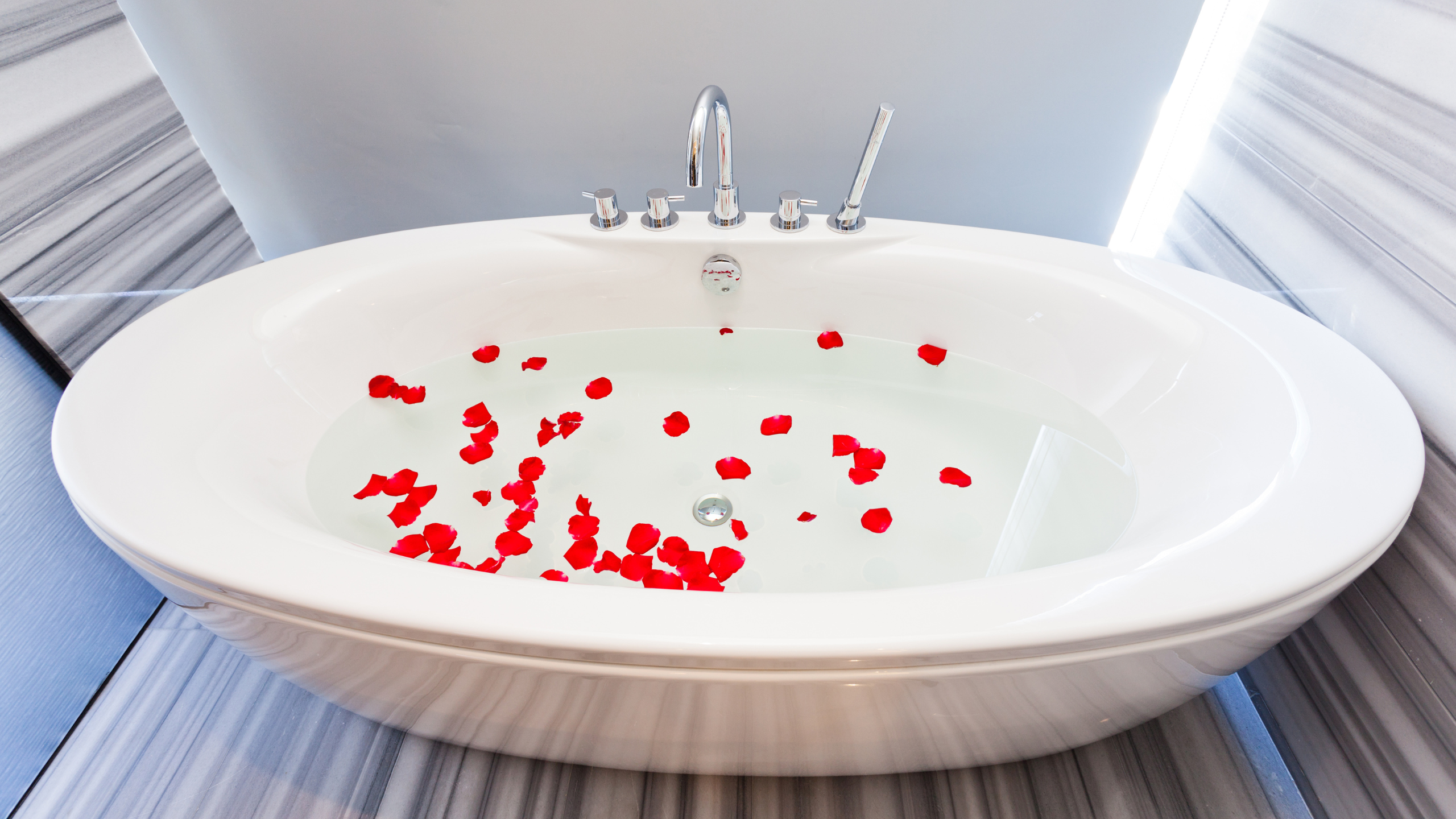An old tub may distract from the look of a bathroom, especially if it has chips, cracks, or other minor damage. While it is possible to replace an old bathtub with a new one, reglazing a tub may revive a whole bathroom. In this section, we’ll look at the advantages and disadvantages of reglazing a bathtub. You may prevent common DIY tub resurfacing problems and present your clients with a beautifully restored room that will endure for years by following a few easy tips.
How to Glaze a Bathtub
Tub resurfacing is the process of refurbishing a bathtub. It is also known as refinishing, reglazing, or recoating. It is broken down into five key steps:
- The tub’s surface has been sanded.
- Cracks and other worn parts are repaired.
- Primer is applied in many coats.
- Paint is applied in layers.
- The tub has been polished to a high sheen.
Step 1: Prepare Your Workspace
Before you begin your bathtub repair project, you must thoroughly organize your workspace. In addition to protecting all surrounding surfaces, you must take all necessary safety precautions. To keep the area well-ventilated, turn on the bathroom fan, open a window, and utilize an industrial fan to push the air outside.
DIY vs. Professional Glazing
Surfacing is an excellent option for bathtubs with scratches, stains, or other minor problems. Homeowners might also choose to restore older historical models. If the damage is modest, acrylic bathtubs may also be reglazed. In these scenarios, you will notice a considerable difference between before and after your project.
Homeowners will undoubtedly try tub refinishing on their own. Although it is feasible, a professional touch may significantly enhance the atmosphere of a bathroom. Topkote’s Bathtub, Tile, and Countertop Refinishing Training Program may help you take your skills to the next level.
Tub resurfacing is recommended in only some scenarios. If a bathtub is in poor condition or your client wants to add modern features like jets, it’s best to replace them.
Reglazing a Bathtub: Pros and Cons
There are many factors to consider while refurbishing a tub:
- How much time will it take?
- How much will it cost?
- Do you want to maintain the individuality of the tub?
In the following sections, we’ll discuss these concerns by arguing the advantages and disadvantages of reglazing a bathtub.
Pros of Professional Tub Resurfacing
There are several reasons to renovate an old bathtub. Tub refinishing:
- Is less costly: Restoration is far less expensive than purchasing a new bathtub. Even if a consumer buys a new tub reasonably priced, it may need to be disassembled to fit through the door. When professional labor is engaged, the cost skyrockets. Overall, tub resurfacing is far less costly.
- Less time is needed: A bathtub replacement might take some time. Reglazing may usually be completed in one or two days.
- The tub’s color may be changed: Pink, blue, and avocado tubs were popular a few decades ago. Tub reglazing is an excellent option for consumers looking to update their bathroom.
- Can keep the characteristics of a tub: Older bathtubs are often well-made. If you’re working on an old model, the homeowners will certainly wish to preserve the original tub design. Tub resurfacing allows you to repair damage while keeping the bathroom’s present appearance.
Cons of Refinishing a Tub
Tub resurfacing has certain downsides as well. Consider a remodeled bathtub:
Can get worn with time: After 10 to 15 years, a reglazed tub will begin to show indications of deterioration.
This tub will not last as long as a new one: While 10 to 15 years is impressive, a restored one will not outlast a new one.
It necessitates the application of harsh chemicals: Bathtub reglazing might expose you and others to potentially hazardous fumes. Wear a mask at all times and keep the workspace aired. Click here to learn more about JW Toms River Tub Reglazing.




